
Mero Beach: The Gem of Dominica
Mero Beach, located on the west coast of the stunning island of Dominica, is a hidden gem that offers a unique blend of natural beauty and cultural richness. The beach is known for its distinctive black sand, a result of the island's volcanic origins, which contrasts beautifully with the azure Caribbean Sea. The shoreline is lined with swaying palm trees, providing ample shade and a picturesque backdrop for a day of relaxation. Visitors to Mero Beach will find an array of activities to enjoy, from snorkeling in the crystal-clear waters to exploring the vibrant local culture. The beach is a popular spot for both locals and tourists, creating a lively yet laid-back atmosphere. On weekends, you can often find live music and local vendors selling delicious Dominican cuisine, adding to the beach's charm. For those interested in exploring beyond the beach, the surrounding area offers plenty of opportunities for adventure. Hike through lush rainforests, take a dip in natural hot springs, or visit nearby fishing villages to experience the island's rich heritage. Mero Beach is not just a destination; it's an experience that encapsulates the essence of Dominica's natural and cultural beauty.
Local tips in Mero Beach
- Visit on weekends to enjoy live music and local food vendors.
- Bring snorkeling gear to explore the underwater life right off the shore.
- Wear sunscreen and bring a hat, as the black sand can get very hot under the sun.
- Try the local cuisine; don't miss out on fresh seafood dishes.
- Explore nearby hiking trails for a full experience of Dominica's natural beauty.
Mero Beach: The Gem of Dominica
Mero Beach, located on the west coast of the stunning island of Dominica, is a hidden gem that offers a unique blend of natural beauty and cultural richness. The beach is known for its distinctive black sand, a result of the island's volcanic origins, which contrasts beautifully with the azure Caribbean Sea. The shoreline is lined with swaying palm trees, providing ample shade and a picturesque backdrop for a day of relaxation. Visitors to Mero Beach will find an array of activities to enjoy, from snorkeling in the crystal-clear waters to exploring the vibrant local culture. The beach is a popular spot for both locals and tourists, creating a lively yet laid-back atmosphere. On weekends, you can often find live music and local vendors selling delicious Dominican cuisine, adding to the beach's charm. For those interested in exploring beyond the beach, the surrounding area offers plenty of opportunities for adventure. Hike through lush rainforests, take a dip in natural hot springs, or visit nearby fishing villages to experience the island's rich heritage. Mero Beach is not just a destination; it's an experience that encapsulates the essence of Dominica's natural and cultural beauty.
When is the best time to go to Mero Beach?
Iconic landmarks you can’t miss
Dominica Botanical Gardens
Discover Dominica's natural beauty and cultural heritage at the serene Botanical Gardens in Roseau, a living museum of tropical flora.
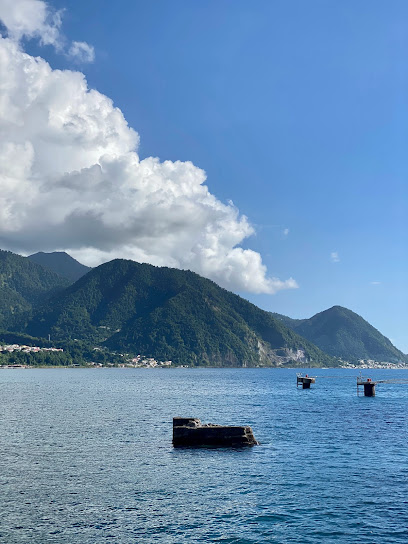
Emerald Pool
Discover Dominica's iconic Emerald Pool: a stunning waterfall and emerald-green pool nestled in the heart of a lush rainforest.
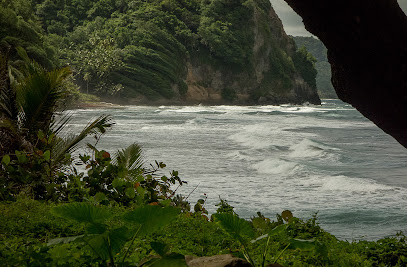
Trafalgar Falls
Discover Dominica's iconic Trafalgar Falls: Twin waterfalls, lush rainforest, and geothermal hot springs await!
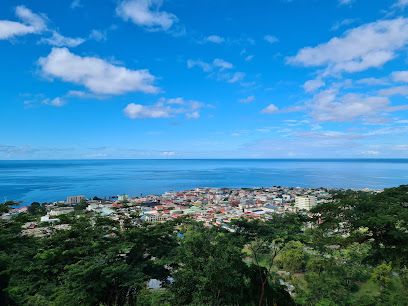
Titou Gorge
Swim through a narrow gorge carved by volcanic activity to discover a hidden waterfall in Dominica's Morne Trois Pitons National Park.
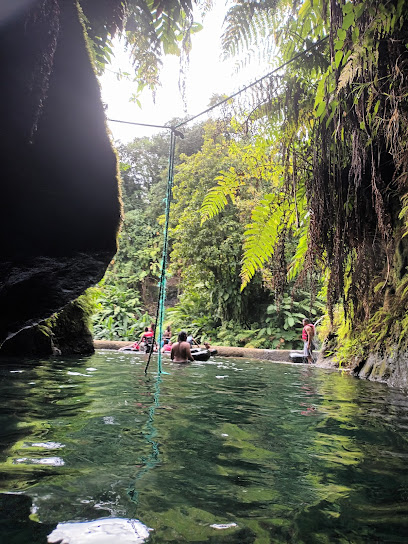
Mero beach
Discover Mero Beach: Dominica's unique black sand beach offering relaxation, water activities, and a taste of local Caribbean culture.
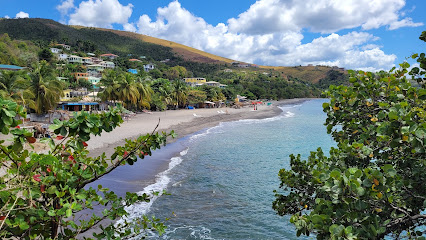
Champagne Reef, Dominica
Experience Dominica's Champagne Reef: Snorkel or dive in warm, bubbling waters amidst vibrant marine life and unique volcanic vents.
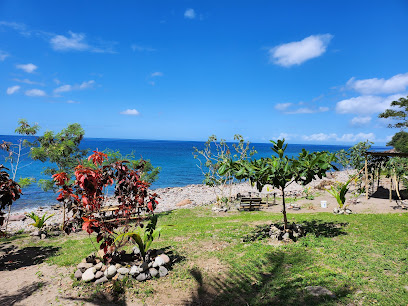
Fort Shirley
Discover Dominica's European past at Fort Shirley in Cabrits National Park. Explore well-preserved ruins, enjoy panoramic views, and learn about Caribbean history.
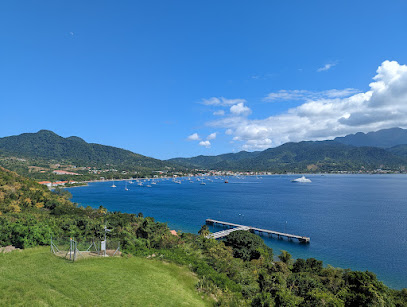
Kalinago Barana Aute
Discover the vibrant traditions and rich heritage of the Kalinago people at this living cultural center in Dominica's Kalinago Territory.
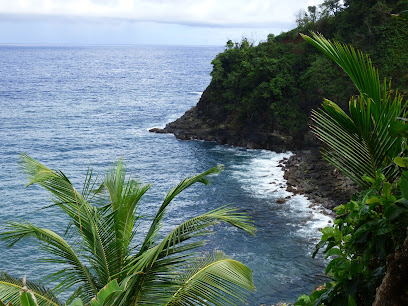
Morne Bruce Viewpoint
Discover panoramic views & colonial history at Morne Bruce in Roseau, Dominica. A unique blend of natural beauty & historical significance!
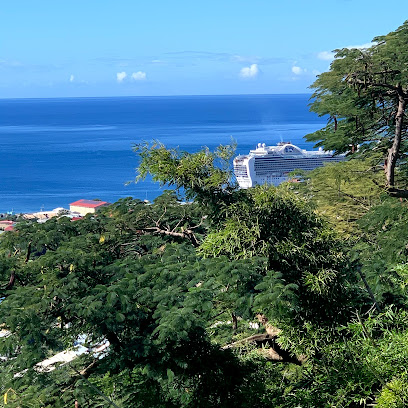
Morne Trois Pitons National Park
Explore Dominica's Morne Trois Pitons National Park: a UNESCO site with rainforests, volcanoes, Boiling Lake, and diverse hiking trails.
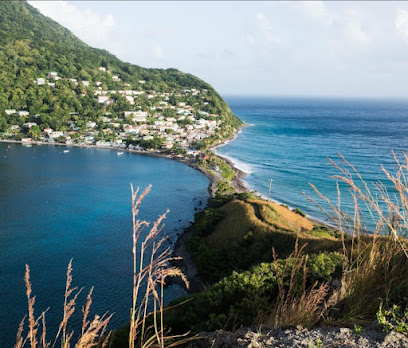
InDee's Beach Bar and Restaurant
Experience authentic Caribbean flavors with ocean views at InDee's Beach Bar & Restaurant, a vibrant culinary destination on Mero Beach, Dominica.
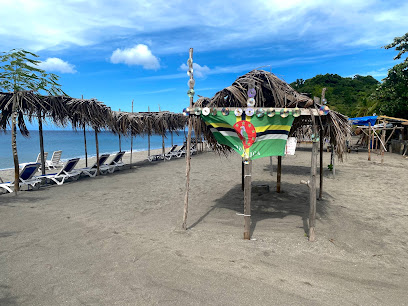
Bubble Beach Spa
Experience the therapeutic warmth of Dominica's volcanic hot springs at Bubble Beach Spa in Soufriere, a unique seaside haven for relaxation and snorkeling amidst stunning coastal scenery.
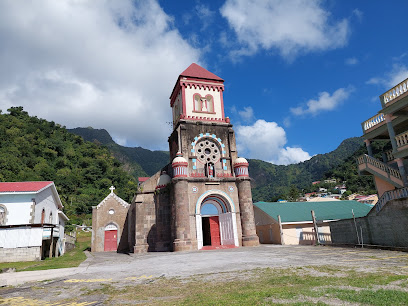
Ruins Rock Café
Experience exotic cuisine and vibrant culture at this unique café and bar in the heart of Roseau, Dominica.
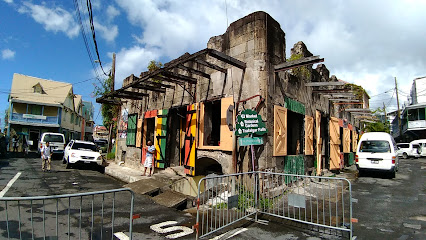
Papillote Tropical Gardens
Discover Dominica's natural beauty at Papillote Tropical Gardens: lush flora, soothing hot springs, and cascading waterfalls await in this rainforest paradise.

Spanny Falls
Discover the unspoiled beauty of Spanny Falls near Marigot, Dominica: a tranquil rainforest escape with refreshing pools and cascading waterfalls.
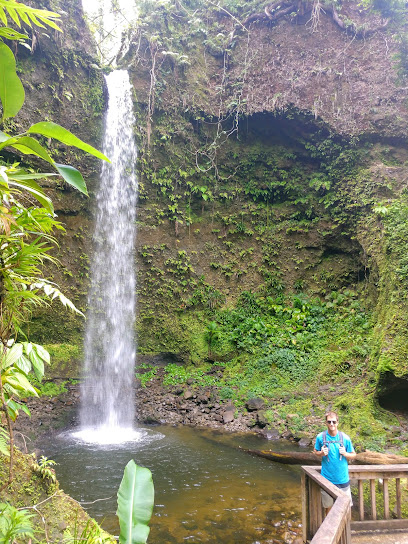
Essential places to dine
Purple Turtle Beach Club
Experience vibrant dining and stunning beachfront views at Purple Turtle Beach Club in Portsmouth.
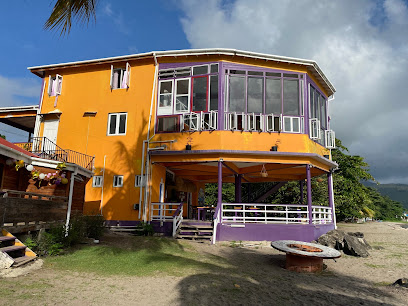
Chez Wen Cuisine
Experience authentic Caribbean seafood at Chez Wen Cuisine in Scott's Head - where fresh flavors meet breathtaking ocean views.
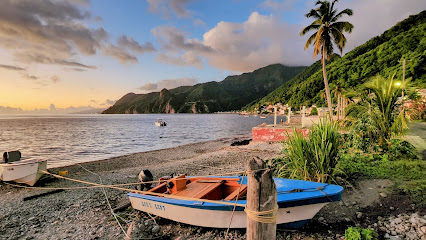
Lacou Melrose House
Discover authentic Caribbean flavors at Lacou Melrose House in Roseau, Dominica - where culinary excellence meets warm island hospitality.
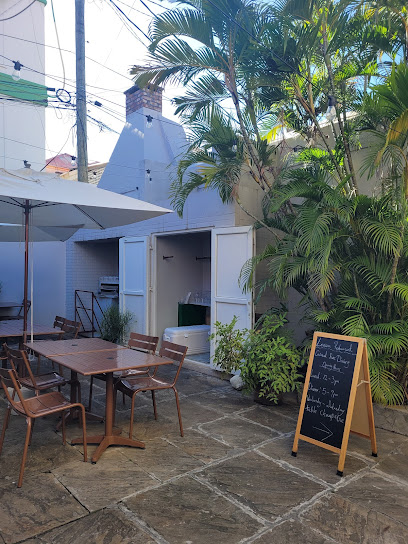
Petit Paris Restaurant & Bar
Experience authentic Caribbean flavors at Petit Paris Restaurant & Bar in Roseau – where every dish tells a story.
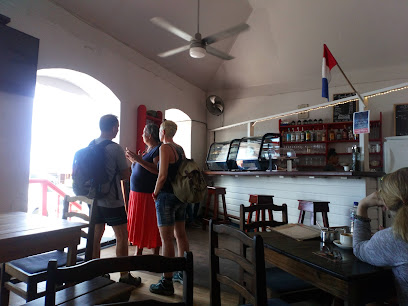
Coral Reef Bar & Restaurant
Discover delicious Caribbean cuisine with breathtaking ocean views at Coral Reef Bar & Restaurant in Calibishie.
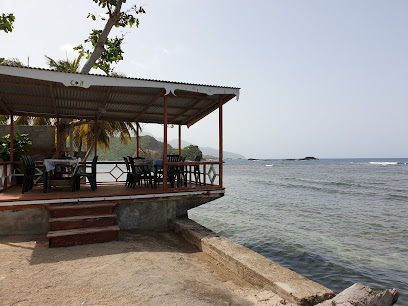
Hi Rise Beach Bar
Discover Hi Rise Beach Bar in Roseau: A vibrant restaurant and bar where Caribbean flavors meet stunning bayfront views for an unforgettable dining experience.
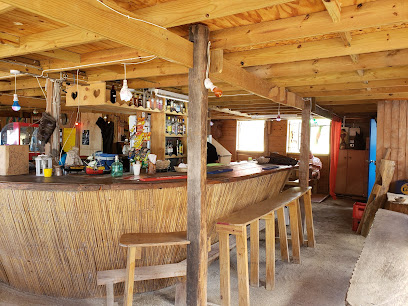
InDee's Beach Bar and Restaurant
Experience delightful Caribbean cuisine with stunning ocean views at InDee's Beach Bar and Restaurant on Mero Beach.
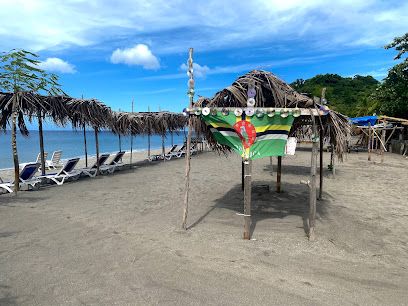
Oriental, C & D Restaurant and Beach Bar
Experience authentic Caribbean flavors at Oriental, C & D Restaurant and Beach Bar in Portsmouth – a culinary paradise by the sea.
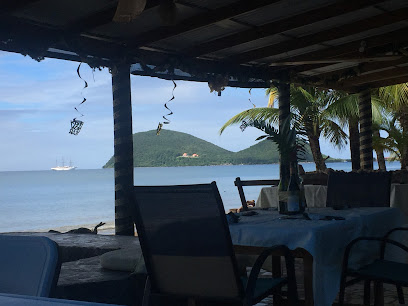
Batibou Beach
Experience the tranquil beauty of Batibou Beach in Hampstead - a hidden gem perfect for relaxation and adventure amidst stunning tropical scenery.
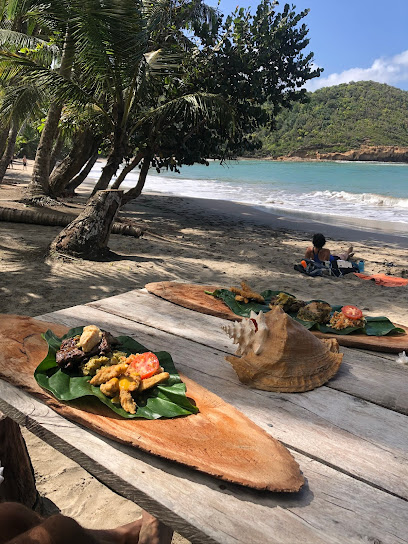
Old Stone Grill And Bar
Discover authentic Caribbean flavors at Old Stone Grill And Bar in Roseau – where every meal tells a story.
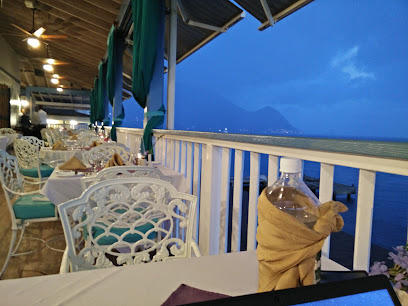
The Great Old House
Discover The Great Old House in Roseau – where Caribbean flavors meet inviting hospitality for an unforgettable dining experience.
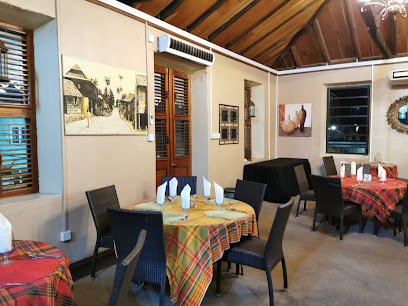
Zeb Zepis Bistro
Discover exquisite French cuisine at Zeb Zepis Bistro near Emerald Pool, where every dish tells a story of local flavors and fresh ingredients.
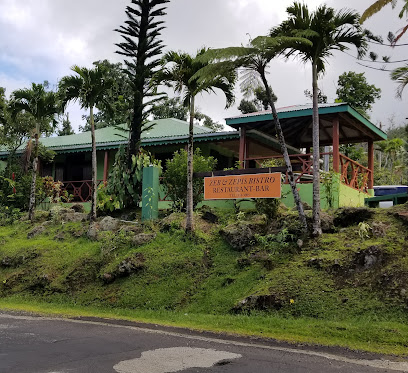
Infinity Restaurant Bar & Grill
Discover authentic Caribbean flavors at Infinity Restaurant Bar & Grill in Portsmouth - where every meal is a celebration of local ingredients and culinary artistry.
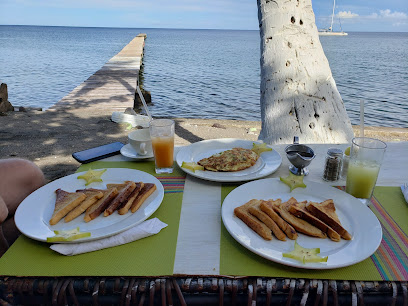
Islet View Restaurant & Bar
Experience exquisite local cuisine with breathtaking Caribbean views at Islet View Restaurant & Bar in Castle Bruce.
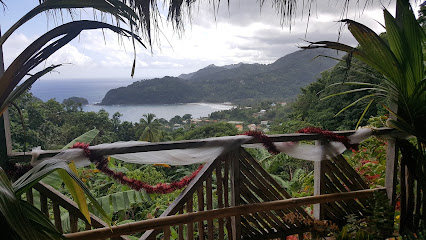
Pagua Bay Bar & Grill
Experience the best of American cuisine infused with Caribbean flair at Pagua Bay Bar & Grill in Marigot.
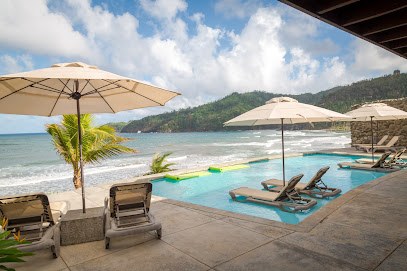
Markets, malls and hidden boutiques
Mero beach
Discover the serene beauty of Mero Beach, a tropical paradise in Dominica, perfect for relaxation and unforgettable adventures.
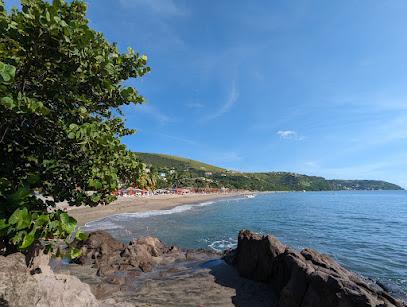
Grocery Shop
Explore the vibrant local culture at St. Joseph's Grocery Shop, your destination for fresh produce and Dominican specialties.
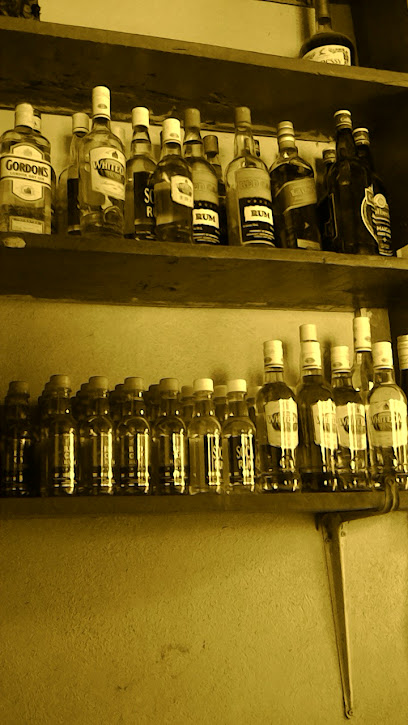
Sunny Days
Experience the warmth and flavors of Mahaut at Sunny Days Grocery Store, your go-to destination for local goods and friendly service.
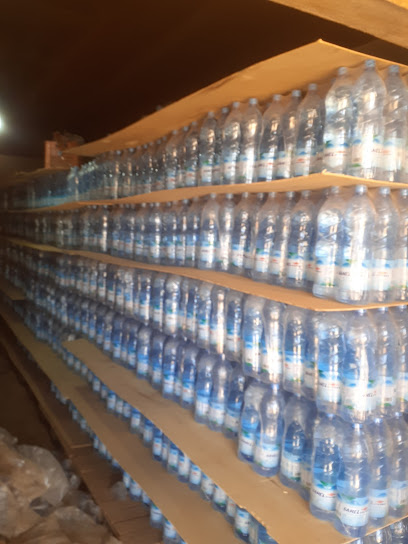
Majic Mart
Explore local flavors and fresh produce at Majic Mart, the go-to grocery store in Mahaut for tourists seeking authentic Dominican experiences.

Un!k Shopping Mart
Discover the local flavors of St. Joseph at Un!k Shopping Mart, your go-to grocery store for fresh produce and unique Dominican products.

Trina’s closet
Explore Trina’s Closet in Roseau for unique women's clothing and accessories that reflect the vibrant Caribbean spirit.
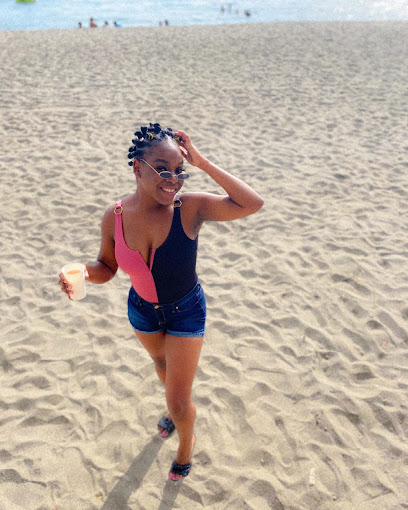
Sunset Sweet Treats
Discover the sweet escape of Sunset Sweet Treats, where delicious ice creams meet stunning beachfront views in Roseau, Dominica.
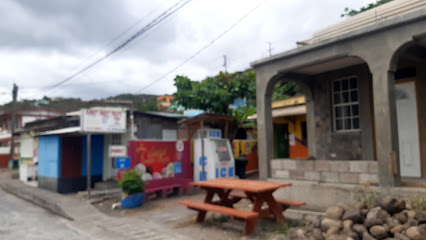
Mino's Snackette & Boutique
Explore the rich flavors of Dominica at Mino's Snackette & Boutique, where local snacks and warm hospitality await.
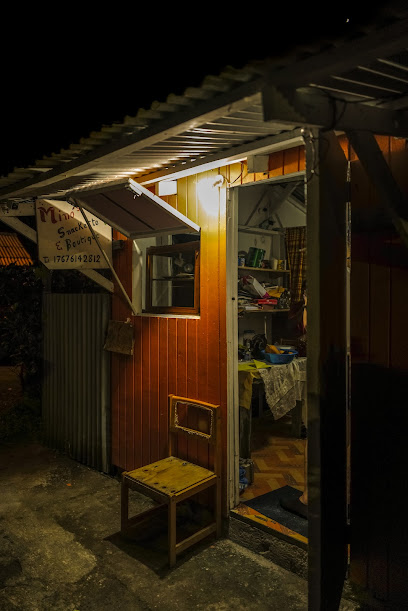
WC Farm Supplies Ltd
Discover the vibrant flavors of Salisbury at WC Farm Supplies Ltd, your go-to farm shop for fresh produce and local goods.

Jhalyn's collection
Explore Jhalyn's Collection in Roseau for unique Caribbean clothing and vibrant local fashion that captures the spirit of the island.

Esmeralda’s_fragrance16
Discover unique shopping and dining experiences at Esmeralda’s Fragrance, a vibrant shopping center in Este, Dominican Republic.

By Merium Shopping Enterprise
Explore authentic local flavors at By Merium Shopping Enterprise, a charming grocery store in St. Joseph, Dominican Republic.

Teana's Creations Plus
Discover unique handcrafted home goods at Teana's Creations Plus in Roseau, a must-visit for culturally rich souvenirs.

Dohara N Designs
Discover authentic Caribbean fashion at Dohara N Designs in Mero, Roseau, where local craftsmanship meets vibrant style.

Le Boutique Francais
Discover local flavors and artisanal treasures at Le Boutique Francais, your go-to grocery store in Roseau, Dominica.

Essential bars & hidden hideouts
Hi Rise Beach Bar
Discover vibrant Caribbean culture at Hi Rise Beach Bar in Roseau, where stunning waterfront views meet delicious food and lively entertainment.
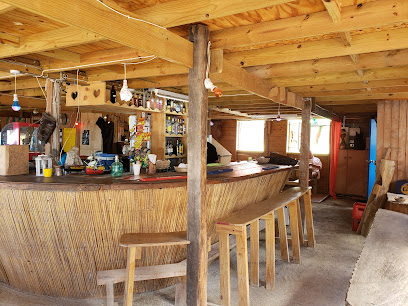
InDee's Beach Bar and Restaurant
Discover the perfect blend of relaxation and culinary delights at InDee's Beach Bar and Restaurant on Mero Beach.
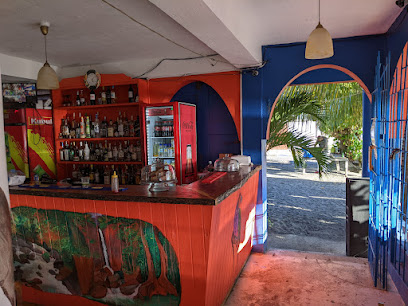
Epic Restaurant and Bar
Discover the vibrant flavors of Dominica at Epic Restaurant and Bar, where exceptional cuisine meets a lively atmosphere in the heart of Roseau.
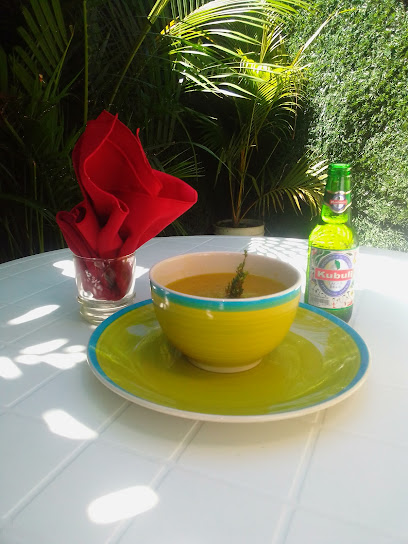
View Point Restaurant and Bar
Discover the perfect blend of breathtaking views and Caribbean flavors at the View Point Restaurant and Bar in Trafalgar, Roseau.
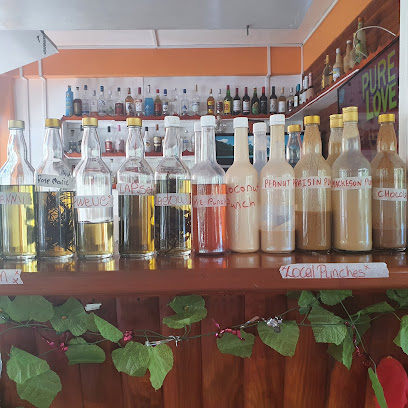
Shyan's Shop and Bar
Experience the vibrant atmosphere of Shyan's Shop and Bar in Pont Cassé, where local flavors and friendly vibes create unforgettable moments.
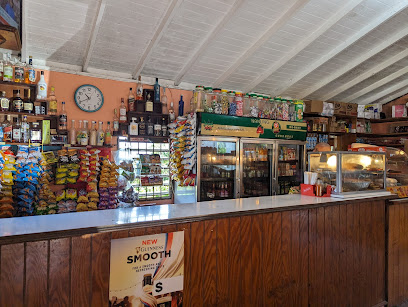
Merokai Beach Bar
Discover the vibrant Merokai Beach Bar in Mero, where delicious food, stunning views, and a lively atmosphere meet for an unforgettable experience.
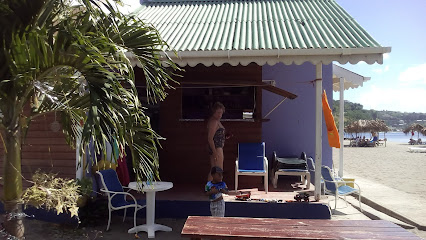
The Realm
Discover the vibrant fusion of bar and culinary delights at The Realm in Roseau; an unforgettable experience awaits you.
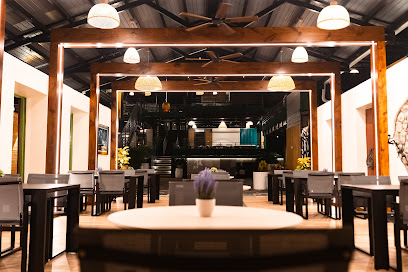
The Nook Café & Wine Bar
Discover the perfect blend of café comfort and vibrant bar atmosphere at The Nook Café & Wine Bar in Roseau, Dominica.
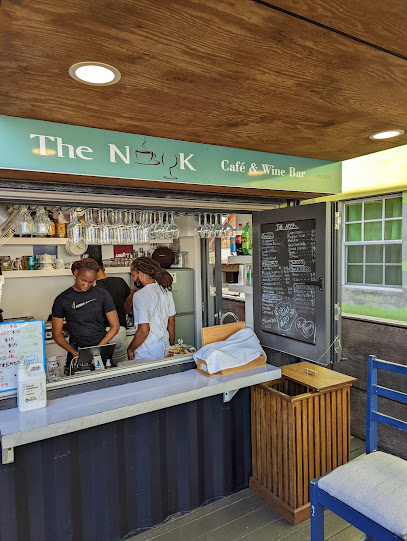
Sardonyx Restaurant & Bar
Experience the best of Caribbean cuisine at Sardonyx Restaurant & Bar in Mero, where flavors meet vibrant atmosphere.
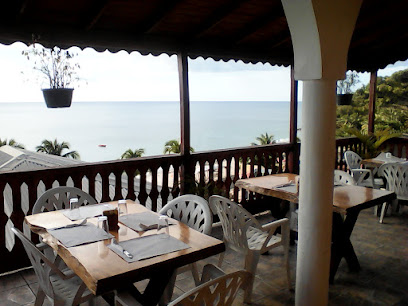
The HIGHWAY PUB
Experience authentic Caribbean cuisine at The Highway Pub in Grand Savanne, where local flavors meet vibrant atmosphere.

La croix bar and grill
Experience the vibrant flavors of the Dominican Republic at La Croix Bar and Grill in St. Joseph, where local cuisine meets a lively atmosphere.
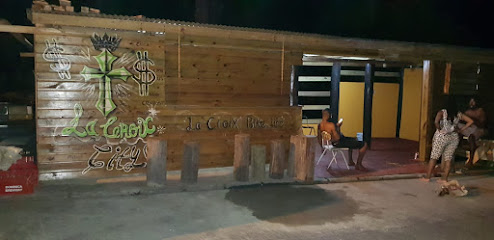
Cecelia Bar And Grill
Explore the vibrant flavors of Baroui at Cecelia Bar And Grill, where local cuisine meets Caribbean charm in a lively setting.
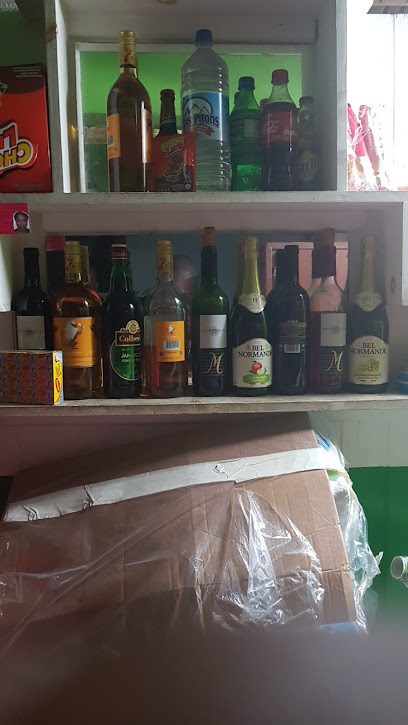
767 HIDEAWAY
Enjoy the lively ambiance, delicious drinks, and vibrant nightlife at 767 Hideaway in Baroui, your ultimate destination for fun and relaxation.
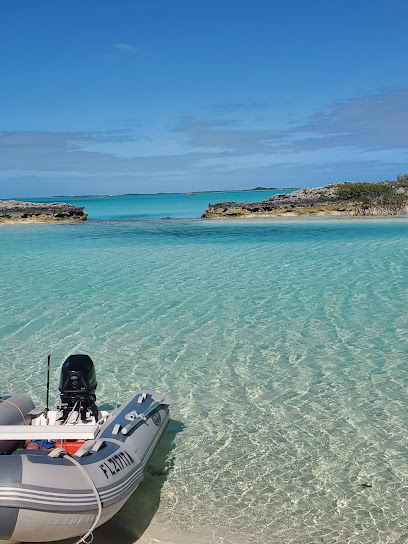
Irie Reef
Experience the best of Caribbean flavors at Irie Reef in Mero, where every meal is a celebration of local culture and culinary art.
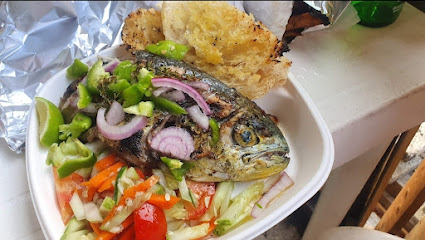
The Hive Bar & Lounge
Experience the vibrant atmosphere of The Hive Bar & Lounge in Roseau, serving up delicious drinks and Caribbean vibes in the heart of Dominica.
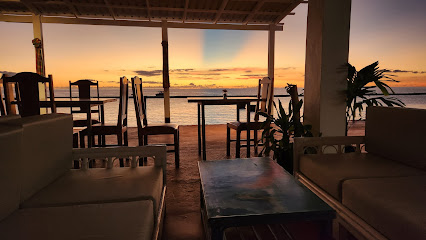
Local Phrases about Mero Beach
-
- HelloWoy
[woy] - GoodbyeBai bai
[bai bai] - YesWi
[wi] - NoNon
[non] - Please/You're welcomePor favor
[por fa-vor] - Thank youMesi
[meh-see] - Excuse me/SorrySkuz mi
[skuz mi] - How are you?Kijan ou ye?
[key-jan oo yeh] - Fine. And you?Byen. E ou?
[byen. eh oo] - Do you speak English?Ou pale angle?
[oo pah-le an-glay] - I don't understandMwen pa konprann
[mwen pa kon-pran]
- HelloWoy
-
- I'd like to see the menu, pleaseMwen ta renmen wè meni an, silvouple
[mwen ta ren-men weh meh-nee an, see-voo-pleh] - I don't eat meatMwen pa manje vyann
[mwen pa manj vyan] - Cheers!Santé!
[san-tay] - I would like to pay, pleaseMwen ta renmen peye, silvouple
[mwen ta ren-men pay-yeh, see-voo-pleh]
- I'd like to see the menu, pleaseMwen ta renmen wè meni an, silvouple
-
- Help!Ed!
[ed] - Go away!Alé!
[ah-leh] - Call the Police!Rele lapolis!
[reh-leh la-po-lees] - Call a doctor!Rele yon doktè!
[reh-leh yon dok-teh] - I'm lostMwen pedi
[mwen peh-dee] - I'm illMwen malad
[mwen mah-lad]
- Help!Ed!
-
- I'd like to buy...Mwen ta renmen achte...
[mwen ta ren-men asht] - I'm just lookingMwen jis gade
[mwen zhees gah-deh] - How much is it?Konbyen sa koute?
[kon-byen sah koo-teh] - That's too expensiveSa twò chè
[sah twah sheh] - Can you lower the price?Ou ka ba pri a?
[oo ka bah pree ah]
- I'd like to buy...Mwen ta renmen achte...
-
- What time is it?Kisa lè li ye?
[kee-sah lay lee yeh] - It's one o'clockLi senkè
[lee san-kay] - Half past (10)Demi (10)
[deh-mee (dis)] - MorningMaten
[mah-ten] - AfternoonApremidi
[ah-pre-mee-dee] - EveningSwaley
[swah-ley] - YesterdayJodi a
[joh-dee ah] - TodayJodi a
[joh-dee ah] - TomorrowDemen
[deh-men] - 11
[1] - 22
[2] - 33
[3] - 44
[4] - 55
[5] - 66
[6] - 77
[7] - 88
[8] - 99
[9] - 1010
[10]
- What time is it?Kisa lè li ye?
-
- Where's a/the...?Ki kote yon/la... ye?
[kee koh-teh yohn/la yeh] - What's the address?Kisa adres la ye?
[kee-sah ah-dres la yeh] - Can you show me (on the map)?Ou ka montre mwen (sou kat la)?
[oo ka mohn-tray mwen (soo kaht la)] - When's the next (bus)?Kile ki vin prochen an?
[kee-leh kee vahn pro-shen an] - A ticket (to ....)Yon tikè (pou ....)
[yon tee-keh (poo)]
- Where's a/the...?Ki kote yon/la... ye?
History of Mero Beach
-
Long before European colonization, the indigenous Kalinago people inhabited the island of Dominica, including the area around Mero Beach. Known for their seafaring skills and vibrant culture, the Kalinago lived in harmony with the land and sea, leaving behind artifacts and oral histories that still resonate today.
-
During the 15th and 16th centuries, Dominica became a focal point for European explorers. Christopher Columbus is said to have sighted the island in 1493. Despite various attempts by the French and British to colonize Dominica, the island remained largely under the control of the Kalinago people until the 18th century.
-
In the late 17th century, the French began to establish small settlements along the coast of Dominica, including the area around Mero Beach. They introduced sugarcane plantations and African slave labor, which profoundly impacted the island's social and economic structure.
-
By the Treaty of Paris in 1763, Dominica was ceded to the British, who continued to develop the plantation economy. Mero Beach became a site for small-scale agriculture and fishing, with its fertile lands and abundant marine life playing a crucial role in the local economy.
-
After the abolition of slavery in 1834, Mero Beach and its surroundings saw a shift in labor dynamics. Freed Africans established their own communities and began to cultivate the land independently. This period marked the beginning of a more diverse and self-sustaining local culture.
-
In the mid-20th century, Mero Beach started to gain recognition as a tourist destination. Its black sand beaches, warm waters, and scenic beauty attracted visitors from around the world. Local businesses began to cater to tourists, offering accommodations, seafood restaurants, and guided tours.
-
Mero Beach is a vibrant hub for cultural festivals that celebrate Dominica's rich heritage. Events such as the annual 'Jazz 'n Creole' festival draw both locals and tourists, featuring live music, traditional dance, and local cuisine. These festivals play a crucial role in preserving and promoting the island's cultural identity.
-
In recent years, efforts have been made to protect and preserve the natural beauty of Mero Beach. Environmental initiatives focus on sustainable tourism, marine conservation, and preserving the beach's unique ecosystem. These efforts aim to ensure that Mero Beach remains a pristine and enjoyable destination for future generations.
Mero Beach Essentials
-
Mero Beach is located on the west coast of Dominica, approximately 20 kilometers north of the capital city, Roseau. The nearest major airport is Douglas–Charles Airport (DOM), situated about 50 kilometers from Mero Beach. From the airport, you can take a taxi or rent a car to reach Mero Beach. The journey by car typically takes around an hour and a half, depending on traffic and road conditions.
-
While Mero Beach itself is small and walkable, local taxis are available for trips to nearby areas. Public buses, known locally as 'minibuses,' run between Mero Beach and Roseau, as well as other parts of the island. Car rentals are also an option for those looking to explore at their own pace. Keep in mind that driving is on the left side of the road in Dominica.
-
The official currency of Dominica is the Eastern Caribbean Dollar (XCD). Credit cards are accepted at most hotels, restaurants, and larger shops, but it's advisable to carry some cash for smaller establishments and local vendors. ATMs are available in Roseau and other major towns, but may be scarce in smaller areas like Mero Beach, so plan accordingly.
-
Mero Beach is generally safe for tourists, but it's always wise to take standard precautions. Avoid walking alone at night in poorly lit areas and be cautious with your belongings in crowded places. While Dominica has a low crime rate, petty theft can occur. Be aware of your surroundings and avoid flashing valuables. There are no specific high-crime areas in Mero Beach, but staying vigilant is always a good practice.
-
In case of emergency, dial 999 or 911 for immediate assistance. The island has medical facilities, with the main hospital located in Roseau. It's advisable to have travel insurance that covers medical emergencies. For minor health issues, there are pharmacies in Roseau where you can purchase over-the-counter medications.
-
Fashion: Do dress comfortably and casually, but avoid overly revealing clothing, especially in more conservative areas. Religion: Do respect local customs and traditions. Many Dominicans are Christian, and it's respectful to dress modestly when visiting churches. Public Transport: Do be respectful and courteous to fellow passengers. Don't eat or drink on public transport. Greetings: Do greet people with a friendly 'Good morning' or 'Good afternoon.' A handshake is also common. Eating & Drinking: Do try the local cuisine, including dishes like callaloo soup and fish broth. Don't refuse hospitality, as it is considered impolite.
-
To experience Mero Beach like a local, visit during the weekly fish fry event where you can enjoy fresh seafood and local music. Engage with locals, as they are often friendly and eager to share stories about the island. Don't miss the opportunity to explore nearby attractions like the Mero Hot Springs and the Layou River. For a unique experience, take a boat tour to see the island from the water, offering breathtaking views of the coastline.
Trending Landmarks in Mero Beach
Nearby Cities to Mero Beach
-
Things To Do in Roseau
-
Things To Do in Castle Bruce
-
Things To Do in La Plaine
-
Things To Do in Rodney Bay
-
Things To Do in Gros Islet
-
Things To Do in Castries
-
Things To Do in Dauphin
-
Things To Do in Marigot Bay
-
Things To Do in Anse la Raye
-
Things To Do in Woodlands
-
Things To Do in Canaries
-
Things To Do in Soufrière
-
Things To Do in English Harbour
-
Things To Do in Malgretoute
-
Things To Do in Praslin






